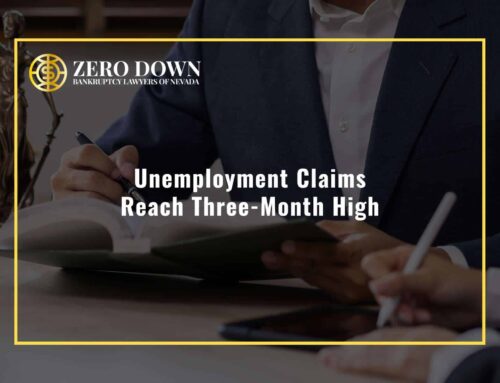Since its inception in 2006, 23AndMe has provided its customers with a convenient and affordable option to learn more about their genetics from home. Whether they wanted to learn about which countries their ancestors were from, if they descended from Neanderthals, or even if they were predisposed to certain health conditions, 23AndMe seemed like a company that had solidified its place in this industry. The company went public in 2021 and at one point was valued at $6 billion. Even at that valuation, the company had a 7% decline in revenue and lost $174 million in just 9 months. In 2023, hackers targeted the company’s data, leading to a $30 million lawsuit in 2024. After a failed attempt to bring the company private, 23AndMe declared chapter 11 bankruptcy in March 2025. Read on to learn more about chapter 11 bankruptcy and how this means your DNA information could be up for sale to the highest bidder. To schedule your free consultation with our Arizona Zero Down bankruptcy team, call 602-609-7000.
Chapter 11 Bankruptcy Basics
Chapter 11 bankruptcy is the type of bankruptcy filing for which you often see headlines, but it actually isn’t that common among regular individuals and small businesses. It is most frequently used by large corporations with debt or high net worth individuals with lawsuits that are about to become debt. Its most notable feature is the creditor committee. When a debtor files for chapter 11 bankruptcy, their top creditors must select representatives who will vote on a number of issues throughout the bankruptcy. This can be major changes to a business during bankruptcy, how to deal with debt, etc.- but regular operations remain in the company’s control. You’ve probably seen several companies file for bankruptcy and turn things around, like Best Buy and JCPenney. Some stores, like Bed Bath & Beyond, file for bankruptcy and go out of business. This would be a decision that would be up for vote by the creditor committee.
One option that some companies utilize in a chapter 11 bankruptcy filing is selling off inventory and equipment to help pay off debts. One example of this was when Hertz Rental Cars sold off a large portion of its fleet of rental vehicles, temporarily reducing the price of used vehicles. When a company uses this strategy, it’s important that it is inventory and equipment that is no longer needed if the company intends to stay in business. So what kind of surplus supplies would a DNA testing company have on hand that it could sell? Lab equipment would be expensive to replace and is vital to the operation of the business. Selling patents and other trade materials would have the same effect. So 23AndMe has made a move that is being hailed as controversial- selling its clients DNA information.
23AndMe has over 15 million customers across the globe, so this bankruptcy sale could affect that many people or more. It may seem like this is private health data that should be covered under the umbrella of HIPAA, or the Health Insurance Portability and Accountability Act. This law makes it illegal to share certain medical information without the patient’s consent. However, HIPAA only applies to hospitals, physicians, and billing companies- not direct consumer companies like 23AndMe. This means that the customer is considered a consumer here and not a patient, and therefore is not protected by HIPAA.
At first glance, your DNA information might not appear very exciting. But whoever buys 23AndMe’s customer database will have broad access to customers who have used the DNA testing service in the past. It can also tell the buyer some information about 23AndMe’s customers’ relatives. What are some examples of the concerns experts have about this potential sale? They fear employers may be able to access your genetic information to detect a predisposition for substance abuse or mental illness and discriminate against that applicant. They also fear that insurance providers could screen out customers based on their potential for illness rather than illness itself. The most realistic outcome is that former 23AndMe customers will soon start to see advertisements that are eerily relevant. Selling DNA information to advertisers will probably be the quickest way for the buyer to turn a profit on their investment.
Should I Choose Chapter 7 Or Chapter 13?
Odds are if you’re reading this article, your best bet for bankruptcy is either chapter 7 or chapter 13. Chapter 11 is simply too complex and expensive for the average person’s debt relief needs. It often requires costly representation from not just bankruptcy counsel but financial advisors and other professionals. There are several unknowns in chapter 11 bankruptcy, while chapter 7 and chapter 13 both provide a predictable path.
Chapter 7 bankruptcy is the most common form of bankruptcy. It clears unsecured debts like medical bills, credit cards, repossession deficiency balances, personal loans, some taxes, and other unpaid bills. While the debtor will lose all of their lines of credit during the bankruptcy, they can open new ones after discharge, which typically only takes 3 to 5 months. While waiting for the discharge, the debtor will be protected by the automatic stay. The automatic stay stops creditors from filing lawsuits, repossessing assets, garnishing wages, and engaging in almost any form of collection, allowing the debtor to focus on fixing their financial issues. While a debtor who needs to catch up on car or house payments or has other secured or priority debts might not benefit much from chapter 7 bankruptcy, someone with a $15,000 credit card balance that balloons out of control due to interest or a $25,000 medical bill that isn’t going away on its own can benefit immensely from chapter 7 bankruptcy. There are income limits for chapter 7 bankruptcy debtors, and some assets won’t be protected if they are more valuable than Arizona’s bankruptcy exemptions. Review your financial situation with an experienced bankruptcy lawyer if you are curious about whether you qualify for chapter 7 bankruptcy’s benefits and protections.
Chapter 13 bankruptcy is a payment plan that lasts 3 or 5 years, depending on the debtor’s income level. You may be wondering why you would want to file for bankruptcy if you are going to pay back your debts anyway. That same automatic stay from chapter 7 applies in chapter 13, protecting the debtor for a number of years until all of their debts are satisfied. Some unsecured non-priority debts can be cleared at the end of a plan that is otherwise paid-in-full. Chapter 13 is a stronger option to catch up on a mortgage to stop a home foreclosure, or catch up on car payments and stop a vehicle repossession.
Discuss Your Options With Our Zero Down Bankruptcy Team
One dilemma with declaring bankruptcy is that many attorneys require their fees to be paid in full before your petition can be filed. Not having the funds saved up isn’t uncommon among bankruptcy clients, who could pay their bills more easily if they were protected by the automatic stay. Our Arizona zero down bankruptcy law firm offers a payment plan option that makes filing your bankruptcy easier than ever. Pay for your filing in affordable installments after clearing your debts for a clean slate. Get started today with your free consultation by phone at 602-609-7000.
Arizona Offices
Phoenix Location:
343 W Roosevelt Street, Suite #100
Phoenix, AZ 85003
Email: [email protected]
Phone: 602-609-7000
Mesa Location:
1731 West Baseline Rd., Suite 101
Mesa, AZ 85202
Email: [email protected]
Glendale Location:
20325 N 51st Avenue, Suite #134
Glendale, AZ 85308
Email: [email protected]
Tucson Location:
2 East Congress, Suite #900
Tucson, AZ 85701
Email: [email protected]










